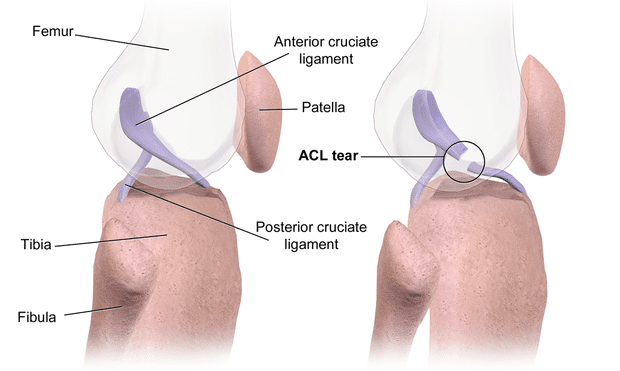 MedicalResearch.com Interview with:
Dr. Bruce Beynnon
MedicalResearch.com Interview with:
Dr. Bruce Beynnon
McClure Professor of Musculoskeletal Research
Dept Orthopedics and Rehabilitation
University of Vermont College of Medicine
Burlington, VT 05405-0084
Medical Research: What are the main findings of the study?
Dr. Beynnon: The anterior cruciate ligament (ACL) is an important stabilizer of the joint, and the study investigated how geometry of this ligament and surrounding bone is related to non-contact injury of this ligament. Specifically, the study focused on MRI-based measurements of the size of the ACL, measured as its volume, and the size of the femoral intercondylar notch, or the small space located in the center of the femur in which the ACL resides. Our study revealed that a decrease in the volume of the ACL and a decrease in the size of the intercondylar notch were associated with an increased risk of suffering a non-contact ACL injury in athletes.
This finding may be explained by the fact that a smaller ligament is associated with a decrease in its biomechanical properties, such as a smaller ultimate failure load. An alternative explanation is that a decreased femoral intercondylar notch size could result in a greater tendency for the ACL to impinge against the walls of the femoral notch during high demand activities, and increase the risk of injury.
The investigation was a longitudinal study with a nested case-control analysis of young, healthy high school and college athletes. The investigation was rigorously designed to control for age, sex, and participation on the same sports team. This enabled us to determine which combination of geometric parameters of the ACL and adjacent bony structures influence risk of suffering a first time non-contact ACL injury.
(more…)


